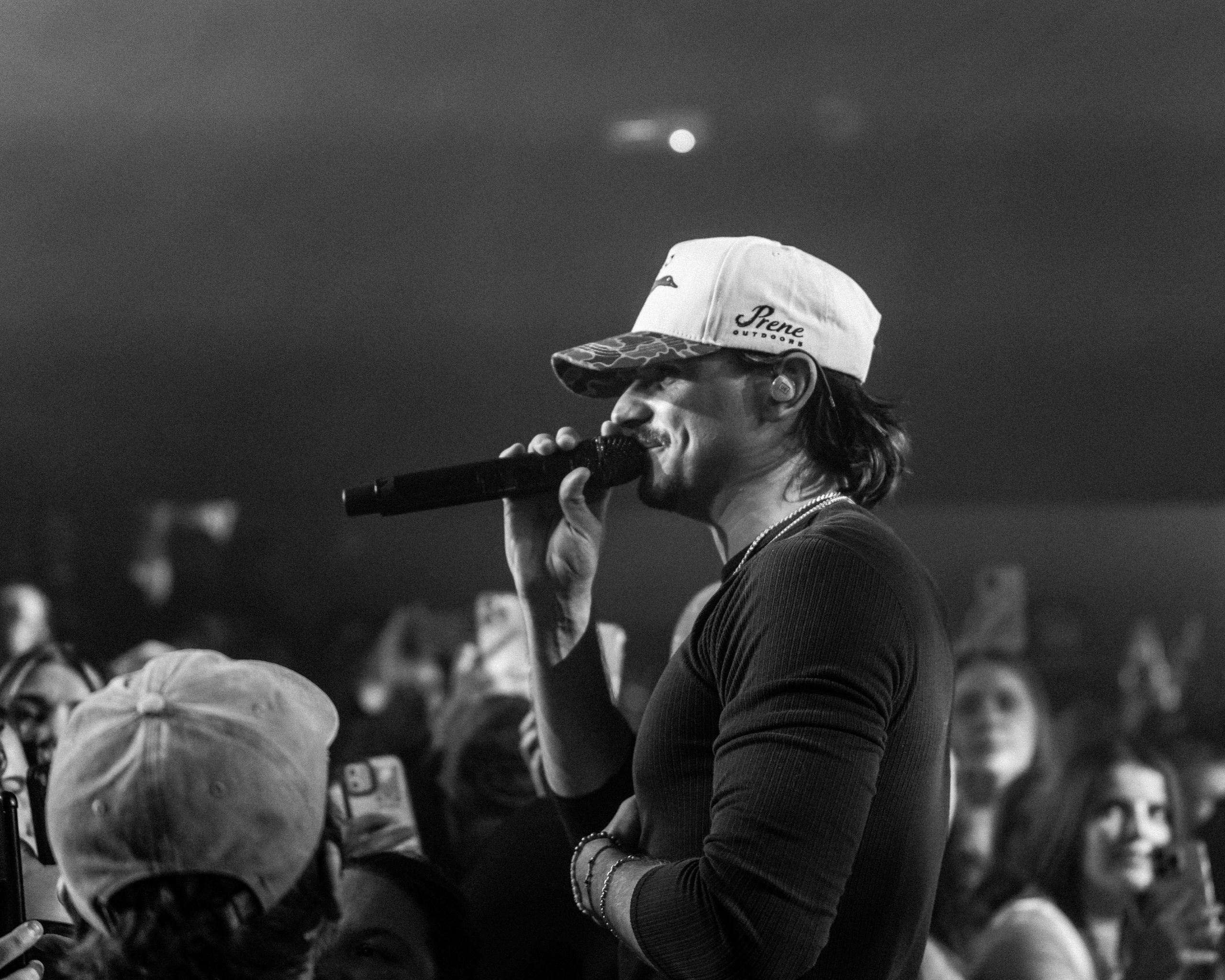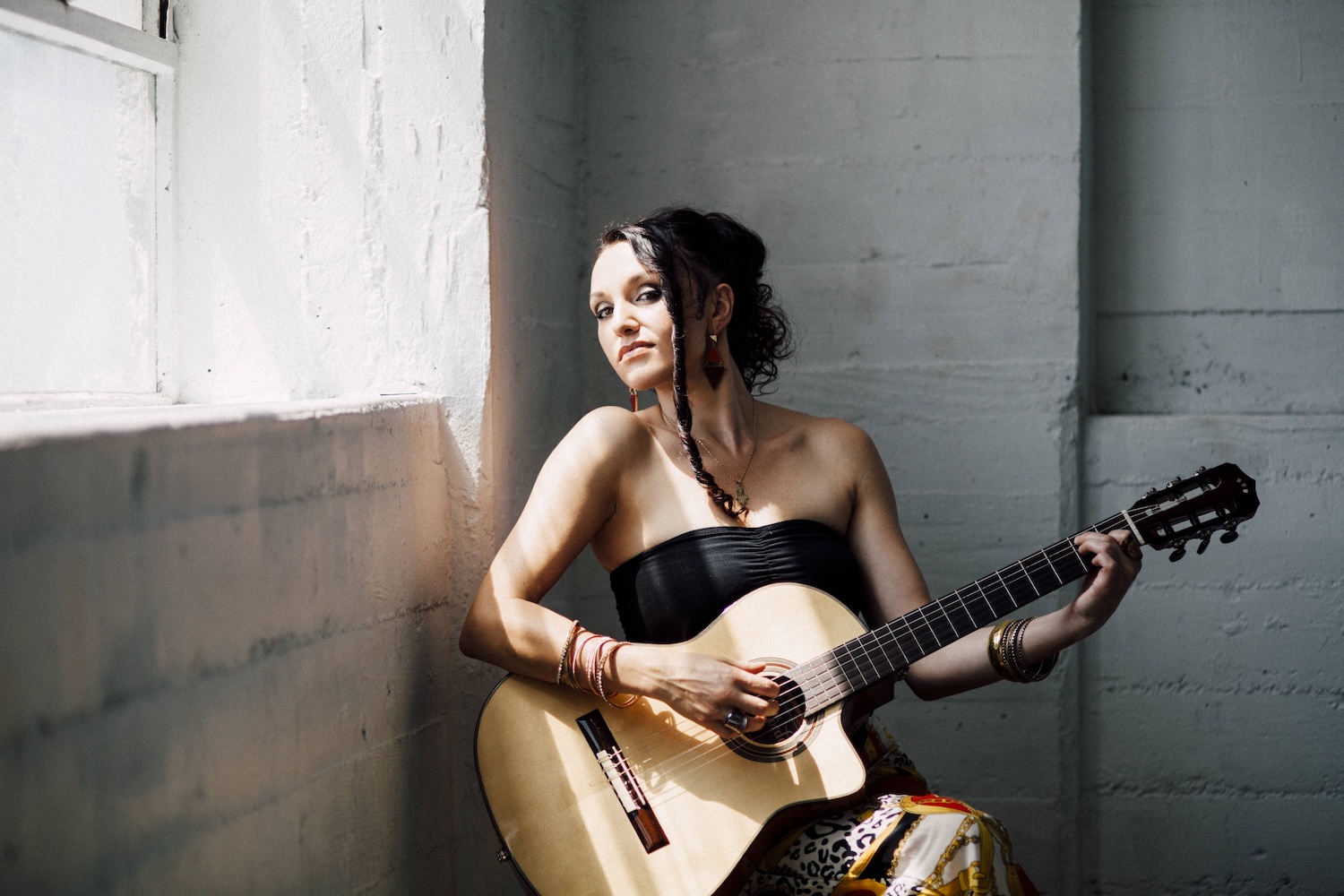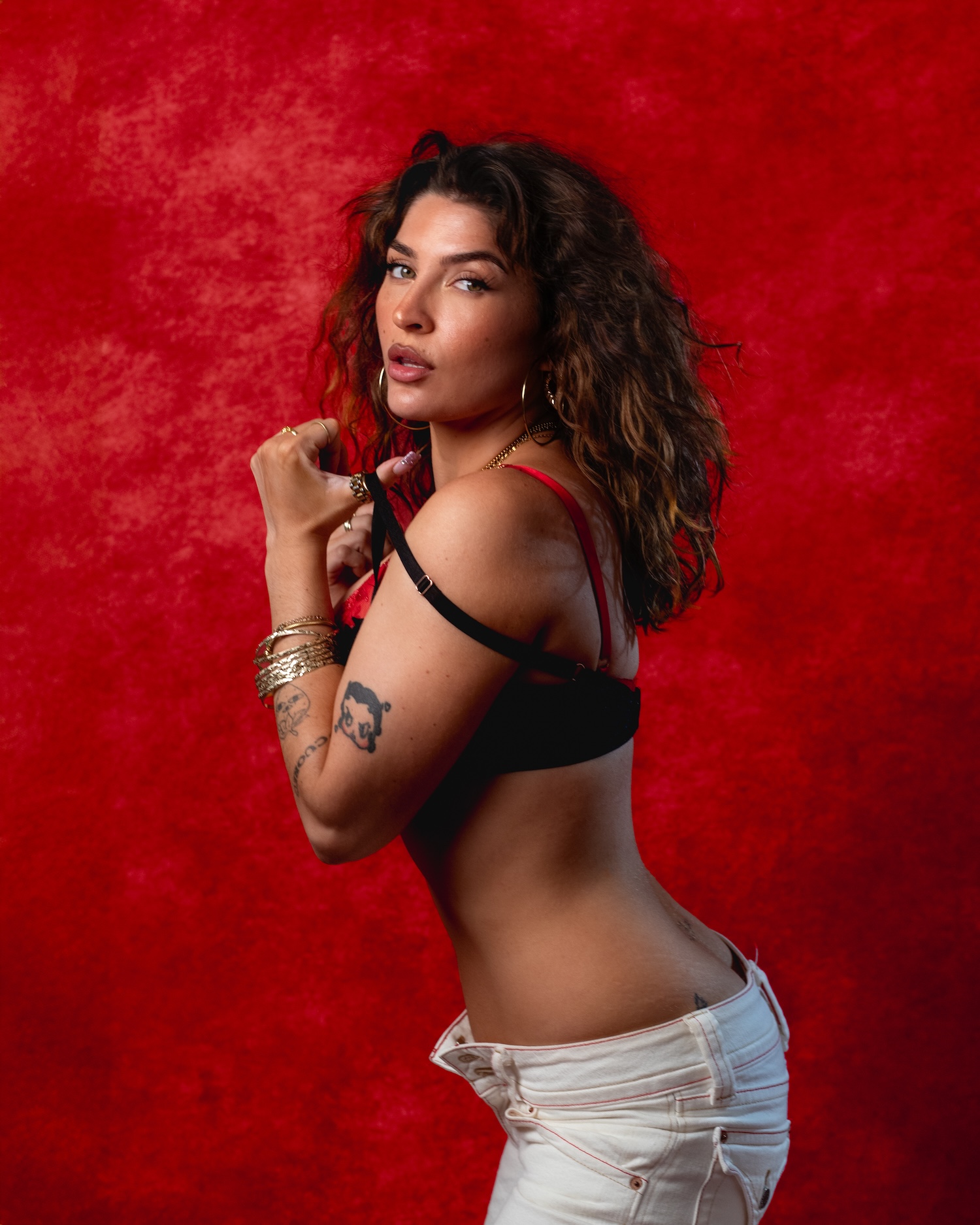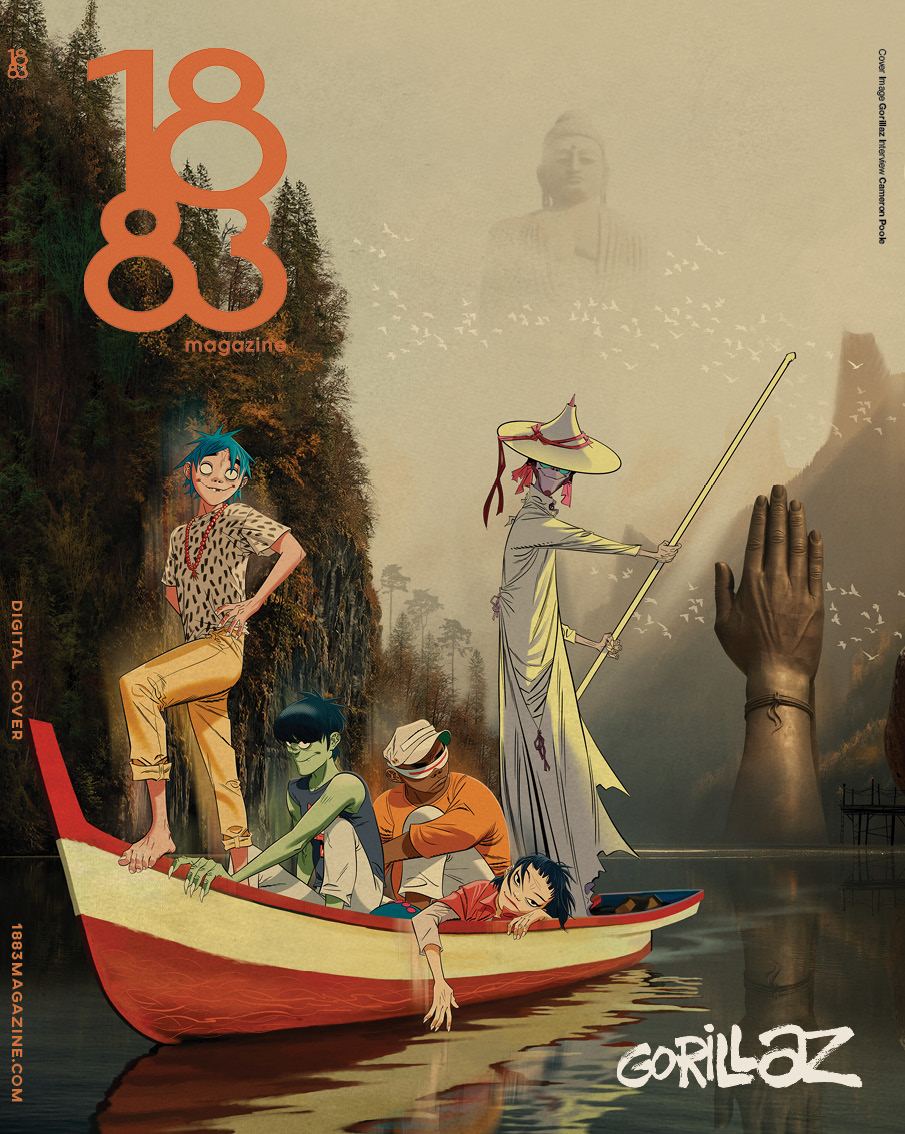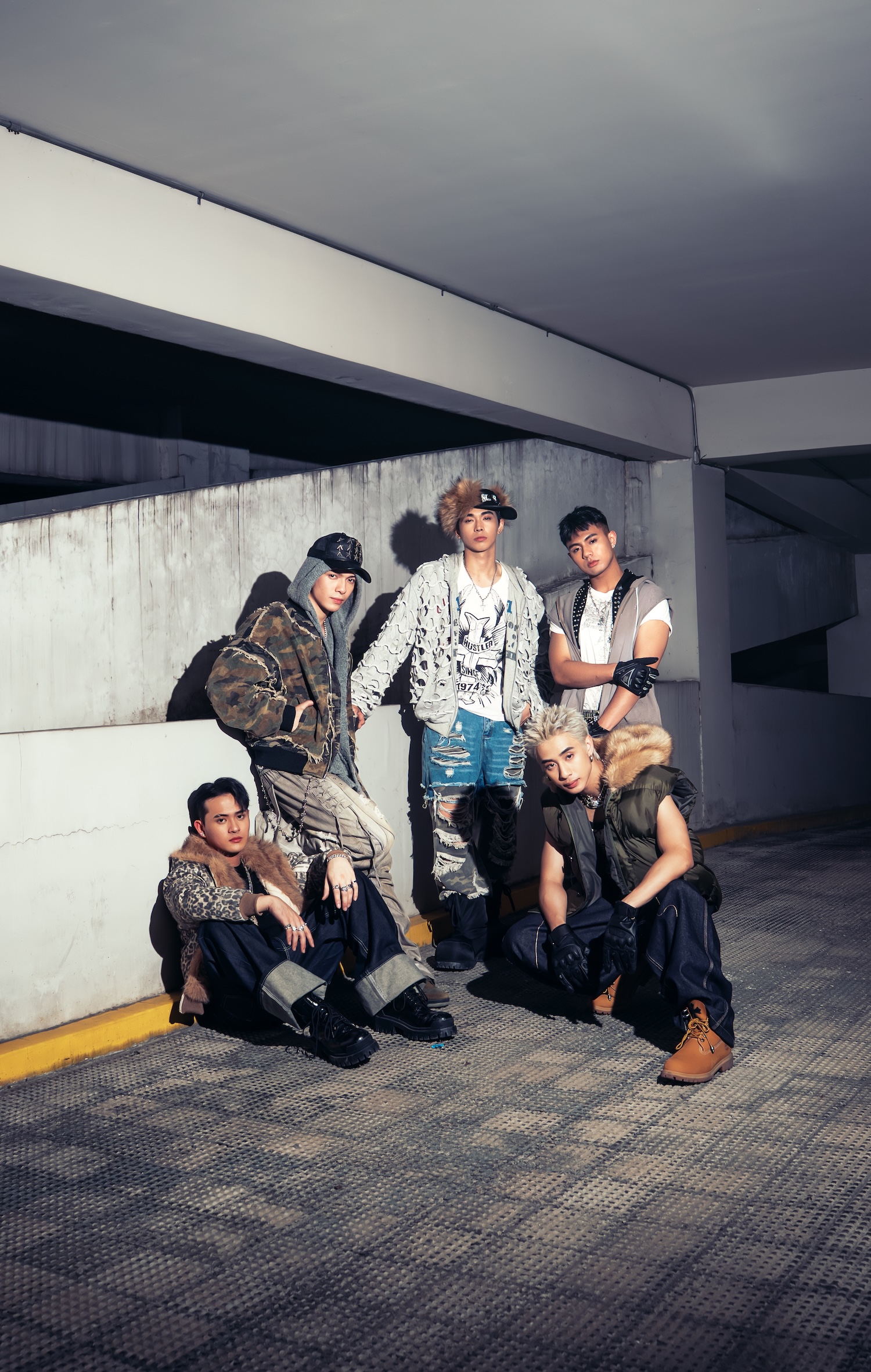For Tucker Wetmore, life has always been a gamble — but that’s exactly how he likes it. Whether it was leaving college to chase a music career in Nashville, betting on himself as a new artist, or navigating the whirlwind of sudden success, Wetmore has built his life around taking risks. And now, with his debut album What Not To, he’s cashing in.
“I wanted it to be more than just songs thrown at a canvas,” Wetmore says ahead of his first-ever headline show in London, reflecting on the project’s deeper meaning. “Everything happened so fast last year that nobody really got to know me. This record — it’s my story. It’s who I am.”
What Not To is as personal as albums come, threading together heartbreak, self-reflection, and life lessons with the easy charm of a natural storyteller. True to his roots, Wetmore isn’t afraid to dig deep, opening up about family, relationships, and his own flaws — including a raw track about his relationship with his father that became the emotional centrepiece of the album. Naming the project after its most vulnerable moment wasn’t the plan at first, but in true Wetmore fashion, he trusted his gut. “I knew it from the beginning, even if I didn’t want to admit it,” he says with a laugh. “It just embodies everything I’m trying to say.”
That same authenticity was on full display during Wetmore’s first-ever headline show in Camden, London, a milestone moment he calls the “perfect nightcap” to two whirlwind weeks overseas. Despite a hectic travel schedule, he soaked up every second and had the entire sold-out audience at Electric Ballroom in the palm of his hands. The crowd was sweaty, loud, and locked in — just the way he likes it. “The fans here care,” Wetmore says, his voice lighting up. “They don’t just listen to the songs — they care about why I made them.”
At just 25, Tucker Wetmore is bringing a fresh optimism — and a much-needed reminder that the best stories are the ones that take their time to unfold. And if What Not To is any indication, Wetmore’s bet on himself is paying off in spades.
In conversation with 1883’s Kelsey Barnes, Tucker Wetmore sits down for a chat about his early music beginnings, crafting his debut album What Not To, and more.

I know an injury ended your football career, and that’s what kind of made you pivot to music. I know you moved to Nashville in 2020, so at what point did you decide to take a chance and see what happens?
I got injured in 2019, so beginning of the spring at Montana Tech University. I ended up getting injured at the end of my freshman year. Everything was going great. I had just been named Scout Player of the Year, already earning some collegiate accolades. They’re like, “Hey, you’re the go-to guy, you’re going to be the number one receiver for the next four years.”
Very validating, very affirming.
Yeah, it was sick… and then it wasn’t. I broke my leg, and that was pretty much the moment. I don’t tell the story often, but I remember the night before — I got home from practice as I would any other day, went straight to the bath, dropped my stuff off in the living room, went straight to the bathroom, locked myself in there, and started bawling. I was crying, weeping, and I remember praying, “Hey God, I need a sign. I need something. Something’s not feeling right, and I don’t feel like I’m in the right spot where I should be.” Everything was going great, so it didn’t really make sense. I dried myself up, went to bed, went to class the next day, and went to practice. First play of practice, ran a post route in the middle, snapped my leg.
Was that the third time you broke it?
Yeah. I’ve blown this knee out twice, and then this leg and ankle. Very first play of the next day of practice, it hurt. The second thought was, “that’s my sign right there.” I ended up moving back home the week after, drove 12-13 hours with my left foot, as you do, and moved back, got a job. Stuff still wasn’t feeling right. I remember sitting my mom down, I was like, “Mom, I’m super lost.”
I read you were working in a coffee shop and she asked if you had picked up your guitar or played piano, almost like it was therapy for you.
It still is, always has been. But I never looked at it as a career path for me. I thought that was out of reach. I come from a super small town. Nobody makes it. Then I started writing a bunch, and moved to Nashville in 2020, without knowing anybody or anything.
Which is a lot when you come from a small town.
Yeah, we only have a stoplight! [Laughs] But that’s pretty much the story of how I got there.
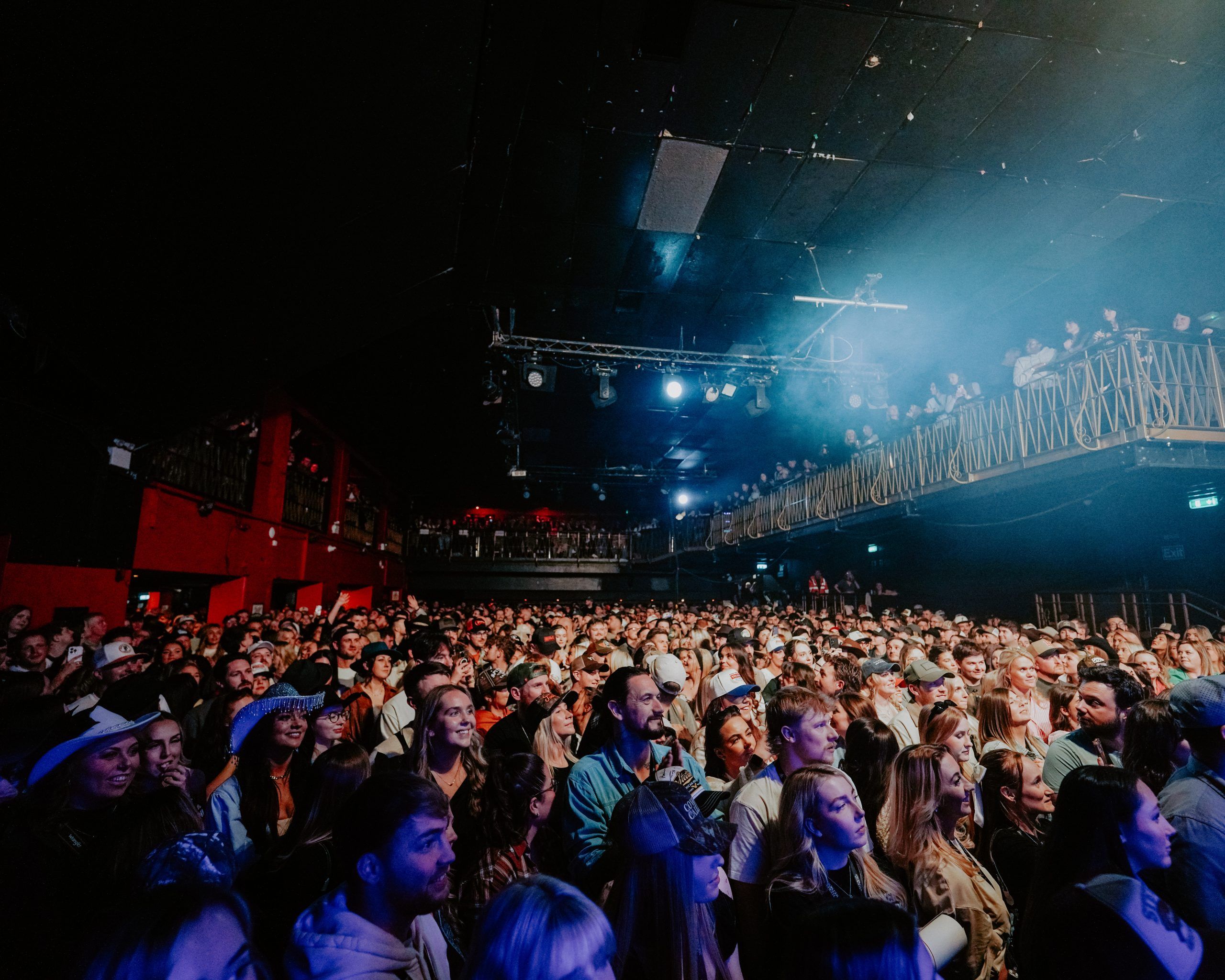
From there, I read you gave yourself goalposts to make within specific years.
You did your homework!
I try! [Laughs]
I’m very goal-oriented. When I first moved to Nashville, I sat my mom down and said “I want to make goals.” The first goal was a publishing deal in at least three years, and I knocked it out in two. Record deal in five years, knocked it out in three. The first tour was five or six years. Then everything happened, and now I’m knocking off another one: my debut album. My first number one, I wanted that in seven or ten years.
And you also had your first UK number one in January, which is amazing. How has it been? Is it really gratifying to know that your music is resonating overseas as well?
It’s fantastic. I only read about these places, London, Germany. I’ve only ever read about them.
Is this your first time in London?
Yeah, my first time. I never thought it was a tangible thing that I’d be able to go see. Now I can do what I love while doing it. It’s the coolest thing.
When you think back to your childhood, is there a moment where you really found that with storytelling, which inevitably came into songwriting?
Interesting. My mom always said I was good at writing papers in school, but I hated it. I sucked at school.
Was there a book or movie that you really loved the story and it resonated with you?
I’ve always loved film. I’ve always loved movies. I’m a huge movie geek. I’m always constantly spurting out quotes from random movies. I love film, I love movies. I don’t read all that much, if I’m being honest. I’m busy.
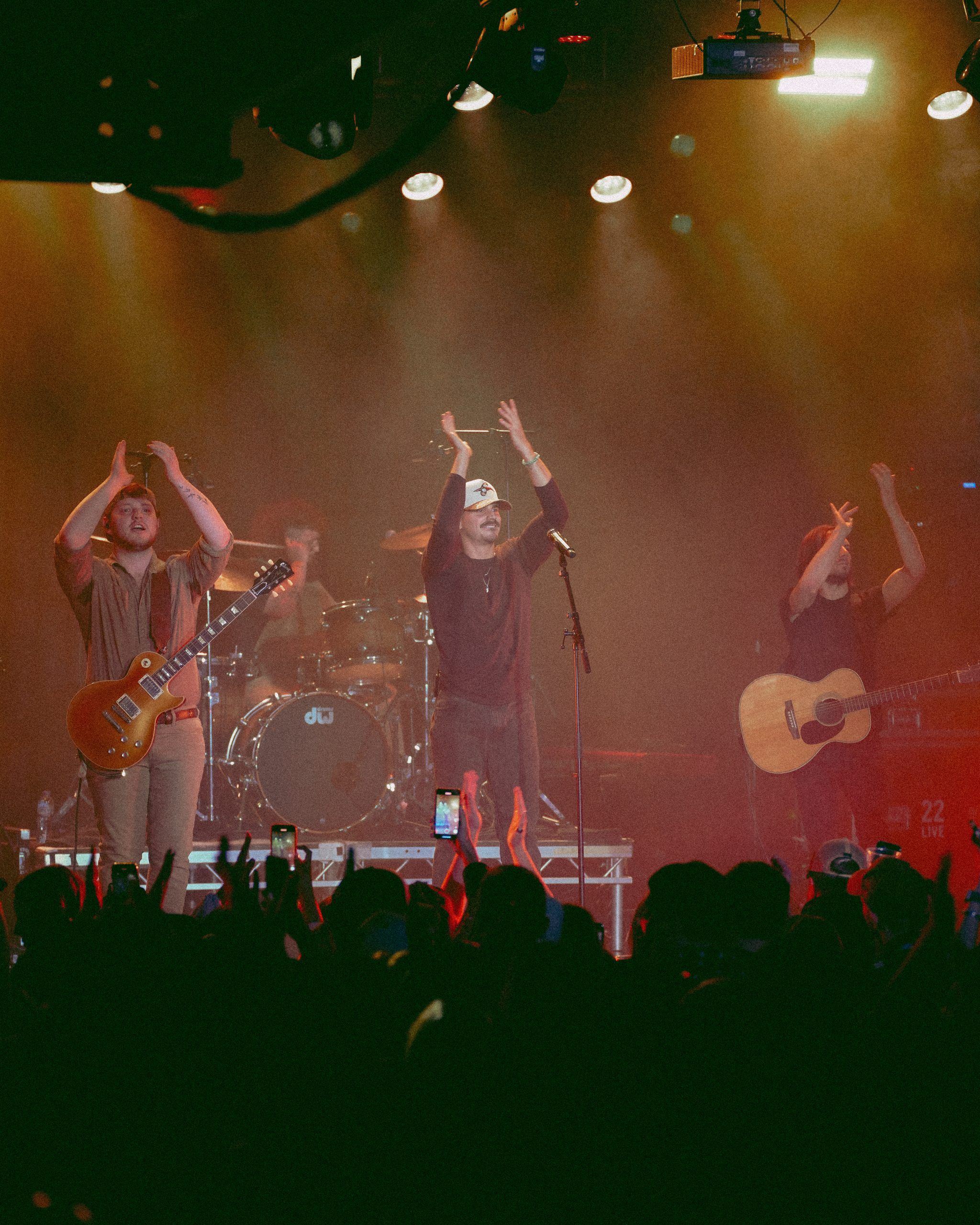
It’s been one year since your debut single. How would you describe your growth as an artist in that year?
Oh gosh. I’m growing every day. I feel like a lot of life, especially the music industry, is trial and error, living and learning. Even if you fail, it’s not a failure, it’s a learning lesson. A lot of growth takes place in the learning period of life. You can pretty much use every day as a learning lesson, and that’s what I do.
Is growth something you’re aware of as it’s happening, or something you don’t realize until you look back?
Most of the time, I try to stay in the moment. Sometimes stuff happens, and I’m like, “why is this happening?” I feel like the world’s crashing down. Then a month or two later, I’m like, “wow, that’s the best thing that could’ve happened.” My leg is an example. It was the end of my football career, and in the moment, I was pissed. I was upset at myself, upset at the world. Now looking back, it was the best thing that ever happened.
When you’re that young, it feels like your world is ending, like your entire future.
Yeah, freshly 19.
A debut album is a huge accomplishment, a major feat. What was the writing and recording process like?
If I were to put one word to it: fun. It was so much fun. All these songs on the record are songs I wrote with my best friends, just us hanging out, and we happened to get a song out of it. The recording process was so much fun. My producer is great. His name is Chris LaCorte, and he’s fantastic.
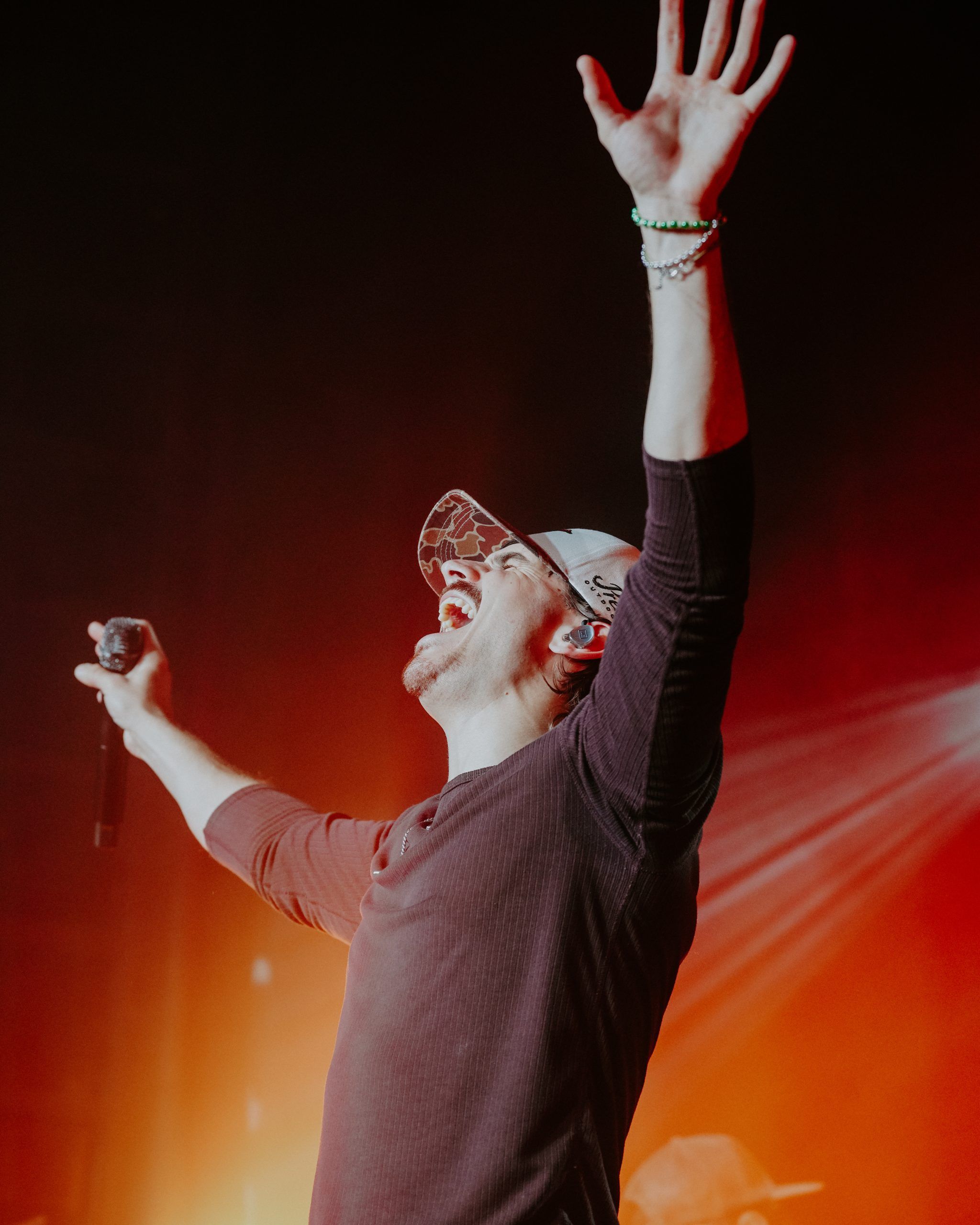
Would you say there is a theme that ties the record together?
I feel like everything happened so fast last year that nobody really got the chance to get to know me as a person. I feel like, a lot of the time, I’m a lot of person, you know? All they see is stuff that I post or they hear the songs on the radio or whatnot. They don’t know me — who I am, you know?
Making an album is something I’ve been looking forward to for literally as long as I can remember. I’ve always said, when I make my first album — or any album — I want it to be more than just songs thrown at a canvas in a pile. I feel like we live in a very single-driven world today. Everyone’s just trying to get the next big hit, everyone’s trying to have their moment. I feel like the art of album-making and storytelling within songwriting is kind of lost now. There’s some people doing it, but they’re not getting the credit or the recognition I think they should. That’s what I want to do. I wanted to create a story.
The theme behind it is me. Who I am as a person — my 25 years of living, why I am the way I am.
We start with “Whatcha Think Is Gonna Happen?” and that pretty much foreshadows the entire album. It’s telling stories of who I am, where I came from, why I’m the way I am, my upbringing. Then it goes through a couple different things. One theme is one portion — a girl. Another portion — another girl. And then another portion — a third girl. I’ve been in three relationships in the last four years or something like that, and it’s me telling my truth about those.
Another theme is casino and gambling. We have so many gambling references in the album. I love a good casino, but I think life is a gamble. Moving to Nashville was a gamble. Dropping out of college was a gamble. I feel like we’re all gambling every single day, even if we don’t know it — choices that we make, living and learning.
Another theme is self-reflection, with “What Not To,” with “Goodbye Whiskey,” with “Whiskey Again” — just looking within myself throughout these periods of my life and saying, “What’s the problem?” Then, finally finding out, there is no problem. It’s just life, you know? It’s me telling the true story about me, and I’m proud of it.

What made you want to name it after the title track, “What Not To”?
I didn’t at first, if I’m being honest, because that’s like the deepest song I’ve ever been a part of. It’s talking about mine and my dad’s relationship, and I didn’t want it to be a focus track of the album at all.
I just wanted to throw it in there, be like, this is also part of me. But “What Not To” really embodies the entire project. I took a step back — my whole team was like, “We think it’s ‘What Not To.'” I subconsciously knew it, too. I was trying to find every other avenue for like two months, and then I finally took a step back and realized I knew this from the beginning. This has to be it.
It’s embodying life lessons, and learning what not to do by watching others or doing the wrong things yourself — and learning what to do by figuring it out. That’s the whole concept of the album.
Is it difficult for you to be vulnerable in music, or is it something that’s like therapy for you almost?
It’s difficult for me to be vulnerable at all, if I’m being honest — unless you’re super, super close.
I think music makes it more tangible for me. I play very vulnerably, and that’s — every time I play something, it’s me pouring my heart out onto it. I think it’s easier with music. I’m not too good at talking about things, so that’s why I write songs.
“When I Ain’t Lookin'” — I love the lyric, “I think the biggest blessings in my life come in disguise.” And then with “Bad Luck Looks Good On Me.” I thought the optimism in that was really, really nice. Is it very natural for you to kind of look on the brighter side of things?
That’s a great question. Yes, I live my life thinking, “Ah, it could be worse.” How many times does it feel like the world is on fire and you think, “At least I’m not dealing with other hard things.” I try to be optimistic in everything. Sometimes I have my days — I’m human, we all do. But I’d say I’m pretty good at just being optimistic and trying to, like I said earlier, remember every day is a life lesson if you take it that way.
I’m even preaching to my guys like, “Hey, we know it’s a shitty day, we might be playing a festival, we’ve only got like 25 minutes to set up and soundcheck — it’s okay, it’s okay. We’re still gonna play a show. We’re here. We got the opportunity to be here. Let’s focus on that. You’re breathing, you’re upright — you ain’t six feet under yet. Life’s too good to worry.
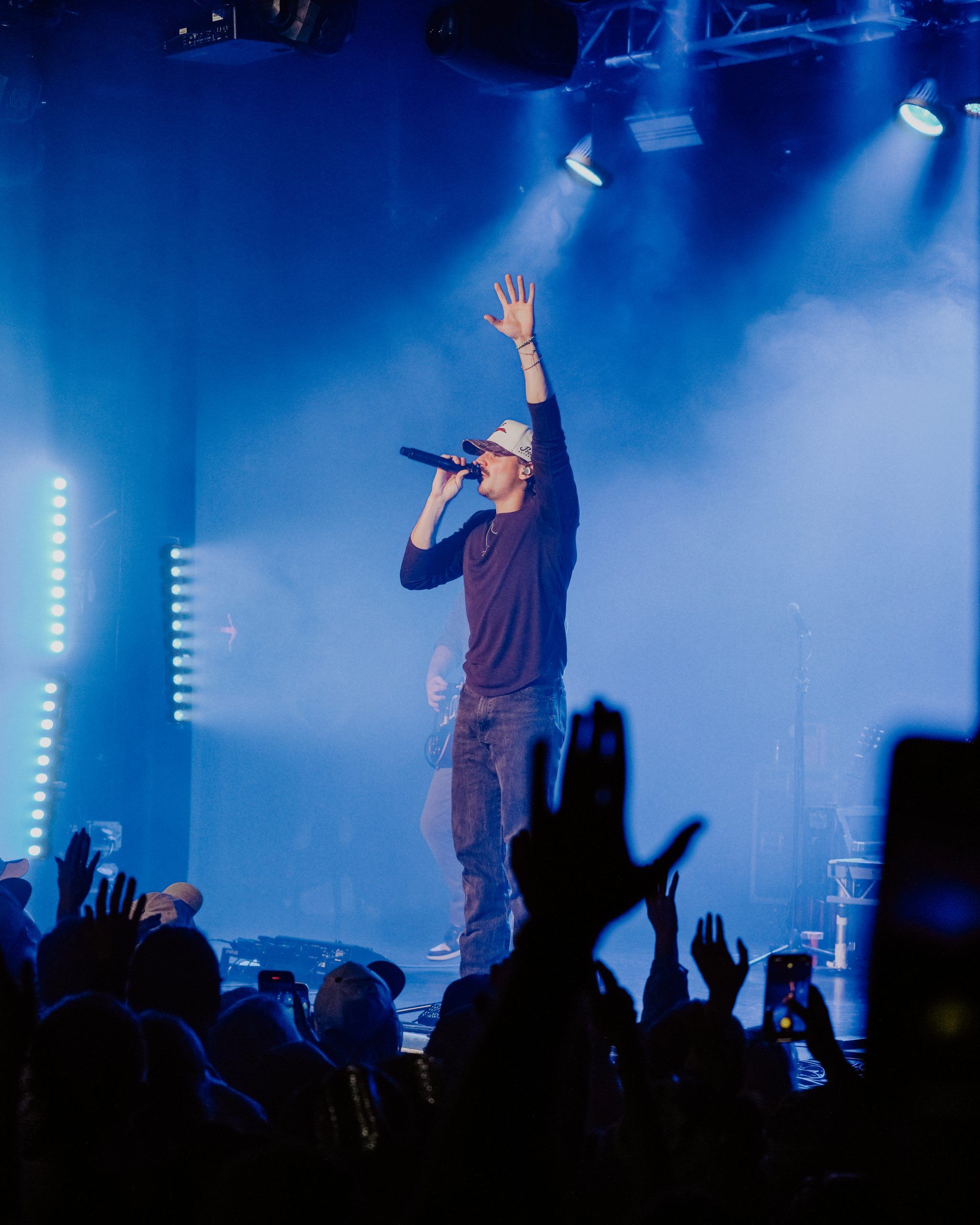
I want to ask you about Jessi Alexander, who I just saw for the first time last week at an event with Visit Music City and Gibson Garage London. I know you guys sang your song “Whiskey Again” recently.
Yes, she’s fantastic. She’s so talented. Not only can she sing her ass off and write some of the best songs Nashville’s ever seen, but she’s just a good person. It made it so easy. Initially, it was just gonna be my vocal on “Whiskey Again,” because she’s not a feature or anything — she’s just singing harmonies. But I was like, “I want a woman’s voice on this.” It’s the outro track of the album. I want it to feel as big as possible, as outro as possible.
I was sitting there, listening to it after recording, and I was like, “This needs a woman’s vocal.” They sent me a couple of names, and then they sent me Jessi Alexander. And I was like, “Isn’t she busy writing ‘The Climb’ for Miley?” We immediately sent it to her, and she was like, “Absolutely, I’ll do that.” Sent it back two days later. It was perfect.
Tonight is your first ever headlining UK show which is very, very exciting. Can I just get your thoughts on that and what it means to you to be performing in London? It’s cool to see country music grow over in the UK.
Yeah, it feels great. I’m so excited to be here, not just be here, but like I said earlier, but be able to do what I love while seeing parts of the world I’ve only read about or seen in movies. The fans have been so great so far. I played C2C Germany and Netherlands last weekend, now London and a couple other places this weekend. The fans — they just care. They’re so attentive. They love to have a good time, but they also love to dive deep into the songs. They respect not just the song, but why I made it — why I poured my heart into it or why I thought it was such a fun song. They respect my outlook on the song and try to look at it through my lens. It’s like the coolest thing in the world. I’m excited for tonight. I heard this venue gets pretty wild.
Yeah, one of the shows I’ve been to here was the sweatiest.
Great. I love getting sweaty. I’m excited. I think it’s the perfect nightcap to the craziness of the last two weeks. After the concert, I’m gonna stay around London, hang out for a bit, act like an idiot.
Lastly, when people listen to this record, what do you hope they take away from it?
I guess my main thing is I want people to walk away feeling like, “Oh, I know Tucker a little more,” you know? That was my big incentive for making this record — letting people get to know me. Music has been such a huge factor in my life for as long as I can remember.
Your grandfather was a pastor at church, right?
Yeah, my grandpa was a pastor. I grew up in church — sleeping on the altar, slumber parties with my cousins there, constantly being in church. Looking back, music has been my therapy, a healing factor for me. If I can create something that does that for at least one other person — I’m chilling. I helped somebody through doing what I love. That’s the most beautiful thing in the world. I know how much other people’s music and stories have helped me — so that’s my biggest thing: doing it for others.
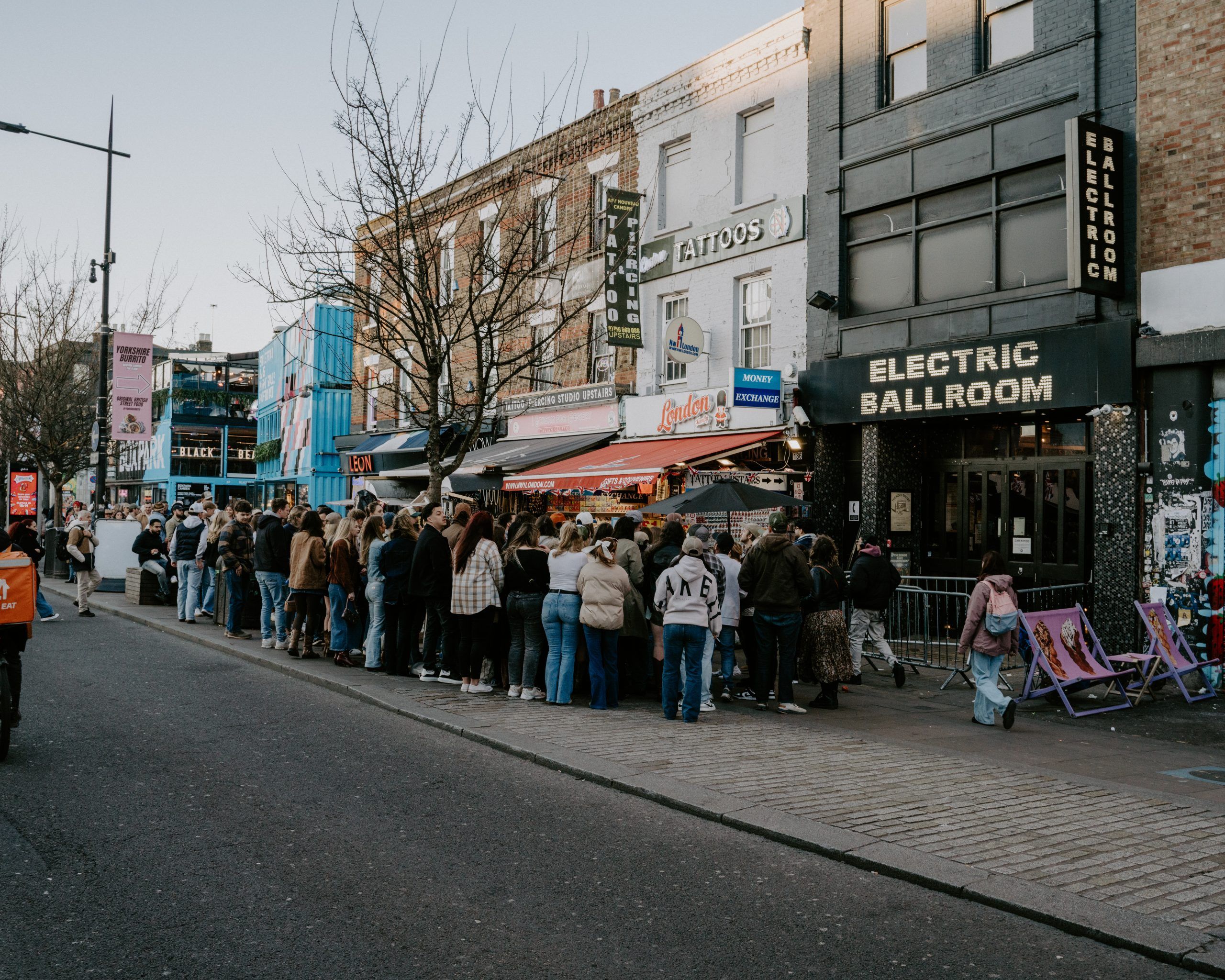
Tucker Wetmore’s debut album What Not To is out now.
Interview Kelsey Barnes

